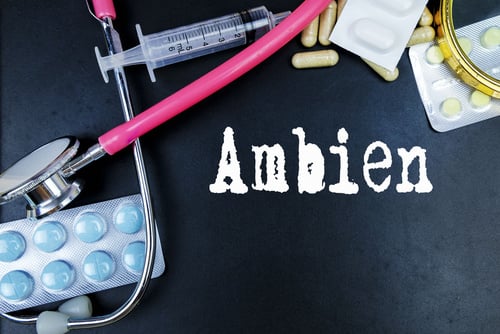What Other Drugs Are In The Same Class As Ambien?
Ambien is a brand name medication; the generic form is known as zolpidem. It is used to treat certain sleep issues (e.g., insomnia). Ambien is a central nervous system depressant that works by acting on certain neurotransmitters in one’s brain, specifically the GABA-A (gamma-aminobutyric acid-A). When Ambien binds to this receptor it elicits a calming effect as it slows down excessive brain activity and inhibits the specific brain activity associated with insomnia. The United States Drug Enforcement Administration (DEA) classifies Ambien as a Schedule IV Substance, which are defined as “drugs with a low potential for abuse and low risk of dependence.” Ambien is not intended for long-term use; rather short treatment periods lasting one to two weeks long, or less are most common. The average half-life, meaning the length of time the substance will remain in one’s system until the concentration in one’s blood has been reduced by half, of Ambien is about 2.5 hours. When Ambien is taken exactly as directed, under strict supervision of a qualified medical professional, it can be a highly effective medication. Ambien belongs to a class of medications known as sedative-hypnotics
Sedative-hypnotics
Sedatives and hypnotics are two classes of drugs that are also known as sleeping pills, tranquilizers, or sedatives. They work by affecting one’s central nervous system and producing a calming reaction. The U.S. Food and Drug Administration (FDA) explains that sedative-hypnotics drug products are a class of drugs used to induce and/ or maintain sleep. There are two main types of sedative-hypnotics:
- Benzodiazepines are fast acting medications intended for short-term, sporadic use. Common examples include:
- Z-drugs act in a similar way to benzodiazepines and are also intended for short-term use. Common examples include:
According to Addiction Center the three most prescribed sedative-hypnotic medications include: Sonata, Lunesta, and Ambien. As is true with taking any type of substance, there will always be associated risks. Prior to prescribing a sleep aid medication, a medical professional will consider all specific risks as they relate to the patient. One of the risks of taking sleep aids too frequently is developing dependence, which can lead to addiction. Sedative-hypnotics can have many side effects that may occur even when using the medication as prescribed. As such, it is important to note that every individual that uses sleep aid medication does not inevitably go on to develop a dependence.
For Information and Support
Substance abuse and addiction can be incredibly dangerous and can result in severe short and long-term consequences. If you or someone you know is suffering from substance abuse or addiction, please get help as soon as possible. The earlier you seek support, the sooner you and your loved ones can return to leading happy, healthy, and fulfilling lives. There is no reason to go through this alone, and we are here to help. Please feel free to reach out to us for further information or with any questions regarding substance abuse or addiction. We are available anytime via telephone at: 213-389-9964, or you can always email us at: info@friendlyhousela.org.



